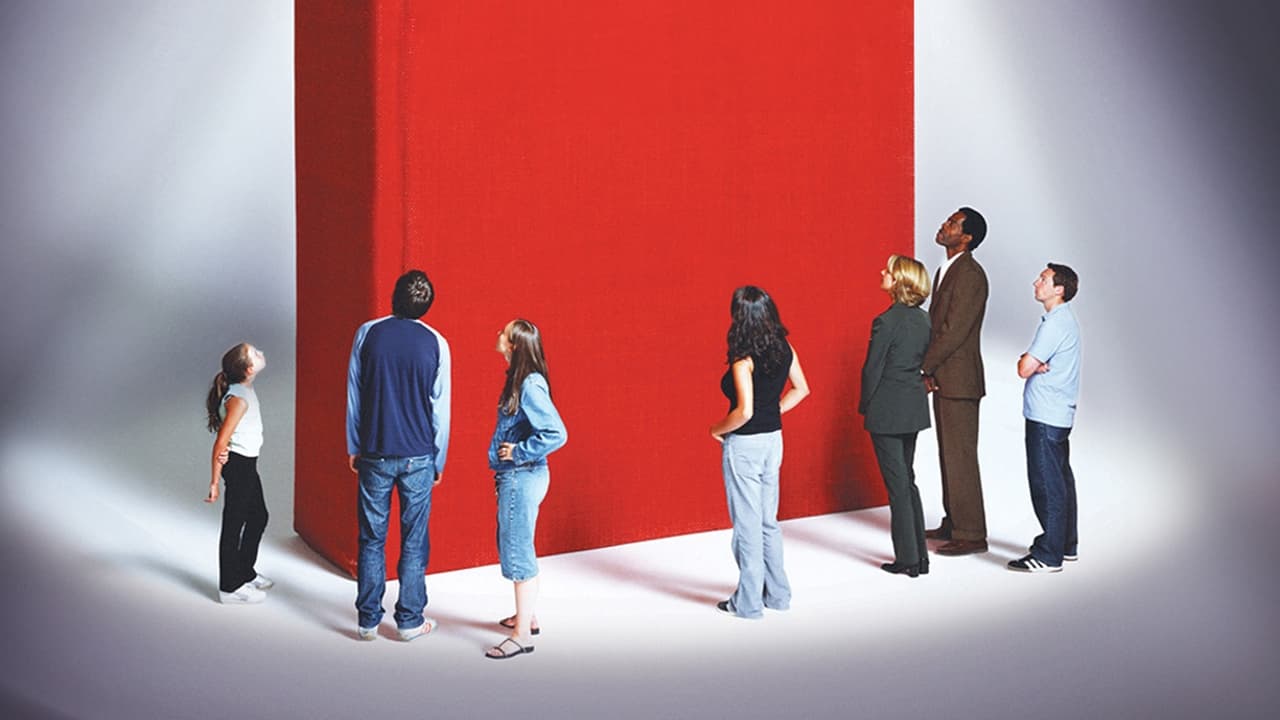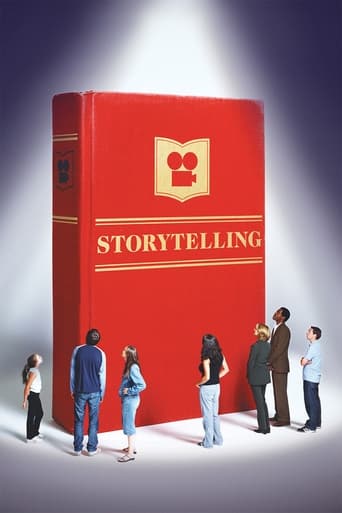

Like Woody Allen, Todd Solondz spends his time poking fun at man's foibles, whilst simultaneously wishing he weren't part of the very social fabric he condemns. It's your classic ego trap: "I'm better and above you, but worthless and wish I were with you." Solondz made "Fear, Anxiety and Depression" in 1989. He wrote and directed that film and, like Woody Allen, also cast himself as the film's neurotic hero. Like Allen's alter ego in "Annie Hall", the geeky looking Solondz spent the entire film bumbling about, venting his various dissaffections.Solondz was never happy with "Fear", however, and promptly disowned the film when his producers re-edited it behind his back. Burnt by the film industry, Solondz slipped into depression. He withdrew into isolation and became a teacher and writer. During these years his approach to art changed drastically. His screenplays became more formal, more precise, more caustic, and his visual style became cold. Ice cold.Solondz's first film when he emerged from his depression was "Welcome to the Dollhouse". Drawing upon his own unhappy school years, "Dollhouse" is about Dawn Weiner, a girl whom the universe seems to have condemned. More sinister than similar teen movies, "Dollhouse's" Dawn is so insecure she's happy to let a kid at school rape her if it means validating her own self worth. This would be rapist is himself marginalized, insecure and so reliant on sexual threats for self validation. Dawn is so filled with rage she even saws off the heads of her sister's dolls, fantasises about bashing people with a hammer and deliberately causes her sibling to be kidnapped by a local paedophile. Meanwhile, all the abuses people hurl at the geeky Dawn, Dawn hurls down at her little sister, a girl whom she unfairly despises. The result is that Dawn is shown to be capable of the same kind of brutality that she's subjected to. Social bullying is internalised, becomes self-hatred, and is then redirected violently back out at others."Dollhouse" was a cosy film compared to Solondz's next three flicks. In "Happiness" he portrays a web of characters, all of whom harbour different problems and neuroses, and all of whom are linked by their desire for absolute contentment. And so we have a paedophile who is only happy around kids, a successful writer who is only happy if she writes something of substance, a musician (who ironically writes songs of substance) who can't find success and is so discontent, an elderly couple who no longer have the will to live, a fat man who fantasises about raping women, a fat woman who is disgusted by sex and a dopey housewife who is blissfully unaware of the disturbing truths that exist beneath her sweet suburban facade. Forget "American Beauty" and "Blue Velvet". Solondz ends his film with a Norman Rockwell kid ejaculating on his front balcony. Solondz's point is almost classically psychoanalytic: Lack breeds Desire breeds Suffering. Peel away the emotional baggage and happiness is a stain that oft amounts to nothing more than a fleeting moment of biological bliss."Happiness" doesn't broadening its horizons to tackle the wider social and structural issues that better directors align to their existential musings, but it does offer more than Sam Mendes' "American Beauty". Indeed, Solondz's next film, "Storytelling", seemed designed to address those critics who pointed out the similarities between "Happiness" and "American Beauty". Mendes has himself slammed Solondz on numerous occasions, and so perhaps "Storytelling" is best viewed as a sort of intellectual assault on Solondz's critics."Storytelling" is divided into two segments, the first called "fiction" the second called "non-fiction". "Fiction" is about a creative writing student who has "sympathy sex" with a mentally disabled kid and later lets her African American teacher "rape" her. She then turns her experiences into a work of fiction which purports to be "truthfully" based on these factual encounters."Storytelling's" second segment then focuses on a documentary director who makes a documentary called "American Scooby" (a parody of "American Beauty") in which he follows a high school student around campus. The documentary director hopes to uncover the "truth" of growing up in suburbia, but in reality is merely transposing his own "deep thoughts", self-analysis and existential hang-ups onto a modern teen who is actually a dopey airhead. The end result is that film-maker and child enter a sort of exploitative relationship. The kid gets fame and is portrayed as being "deeper" than he is, while the film-maker gets prestige for nothing. End result: Solondz essentially advocates the sort of "truthful" sensationalism present in the non-fiction segment of the film, whilst aligning human delusions (love, romantic illusions, family etc) with the fictions of the second half. Other themes abound - the power games and domination/exploitatin reversals of "Dollhouse" are reworked here with subplots about a vengeful maid and a black teacher - but it's the "American Beauty" angle that's most interesting."Palindromes" is thus far the weakest of Solondz's films. The first and last words in the movie are "Mom", a pair of palindromes through which Solondz implies that "nothing ever changes". Indeed, Solondz makes the film a palindrome at every level, his Schopenhaueran point being that we are paradoxically always changing and never changing (hence different actors play the same character), every desire and addiction merely supplanting another. It's an extremely bleak film, depending how much trust the audience puts in its final monologue. This bleakness has led to critics labelling Solondz a misanthrope, but he's no more colder than both Allen and the Coens, two other contemporary critical darlings who've spent their careers reworking similar material.7.9/10 – "Welcome to the Dollhouse", "Palindromes" 8/10 – "Storytelling", "Happiness"
... View MoreWhat makes Storytelling stand apart from other Solondz works is that it is a more explicit commentary on film-making, documenting, any kind of storytelling. With this film, we get a meta-presentation of the craft (Mulholland Drive comes to mind here).In the "fiction" portion, we have a student writing about a personal experience in a college writing class. The experience is explicitly shocking in its racial and sexual questioning, but even the 'shockingness' of it is questioned by Solondz. Unsurprisingly, Solondz beats us to the punch, already mapping our responses. The writing class responds to the story much like many of the reviewers here, using language like "self-indulgent" and "shock with no substance". Solondz then brings up the question, "how can this be if it really happened?" What Solondz is depicting the grimy underbelly of suburbia, true in character, only appearing absurd and contrived when high in density. But once again, Solondz jabs us with the theory that "once you begin writing it all becomes fiction." Within this first short section of this movie, Solondz has set everything up for us: an impenetrable, self-referential mobius strip of a movie.In the second portion of the film, we are told the story of the documentary. Despite the family being documented in a "non-fictional" way, we get caricatures of their beings. The director generally does 'care' about his subjects but like the typical Solondzian ending "don't be sorry, your movie's a hit", we see the struggle of a filmmaker seeking to please his audience as well as 'staying true' to the art.What is ironic here is that Solondz' characters aren't really "mean-spirited" and "banal" people. It is more likely that these adjectives can be applied to the audience who doesn't see 'the truth', who overlooks the diluting processes of documentation; the writing class, the test-audience, you and me. Self-referential paradigms are often over-deterministic and thus seemingly unnecessary, but Solondz has a more lighthearted manner to his display. He isn't really misanthropic; he understands the value, the necessity of discussion, enough to create characters and movies of an accessible complexity. He may be a bit bitter, shrugging his shoulders and saying "don't listen to me, what I know?", but what he really means is "C'est la vie, so what are you going to do about it?"
... View MoreNow from reading the trivia provided by IMDb, it can be learned that their was originally going to be three stories. After learning this, I can somewhat understand the format of movie the director was going for. However, having only two stories (which are disproportionate in the amount of time spent on them) is completely distracting because you find yourself looking for the parallel between them. The theme was their but that wasn't enough. If Solandz would have just pulled one character from the first story and show a glimpse of them in the second, I would have found the movie a lot smoother around the edges. Since he did not do this, I am forced to evaluate the second part of the film more due to the time spent on it as well as plot development.Format aside, I loved the second part of storytelling. All characters are lovable and easy to relate to, especially Scooby. Scooby represents a normal teenager trying to find his own with many confrontations with his parents. So much so, that he can almost be looked at as a theme more than as a character. The portrayal of the oldest, middle, and youngest child is dead on. Parents are a cliché but it only adds to the plot. *SOMEWHAT SPOILER* The beginning shot of the director makes you sympathize him which then leads you to trust his intentions. Everyone, even the viewer, is betrayed by his depiction of the family. The movie ended perfectly, as there was nothing else that could be said or done and I give props to Solandz for being able to leave it perfect and raw.
... View MoreI saw this film today in high school, at cinema class. tough my class is usually in a very high level of film understanding, I was surprised to see how pepole "didn't like the ending" and "tought the film could have used situations to make scenes more emotional", missing all the point of this movie.from my point of view, this film is about emotional disawarness to other pepole's feelings. it is screamed in the relationships inside the family, between the director and Scooby, and in every scene in the script. I do not want to make spoilers for the movie, but I think it shows clear at the last line of the movie."storytelling" takes what so many other movies (like "crash") tried to do, but do it better, with more depth, more meaning, more gentle treatment to the characters, just better. who ever saw it and did not think of the point of characters that are emotionally closed, I think should watch the movie again, because he might miss a spectacular work of cinema.
... View More